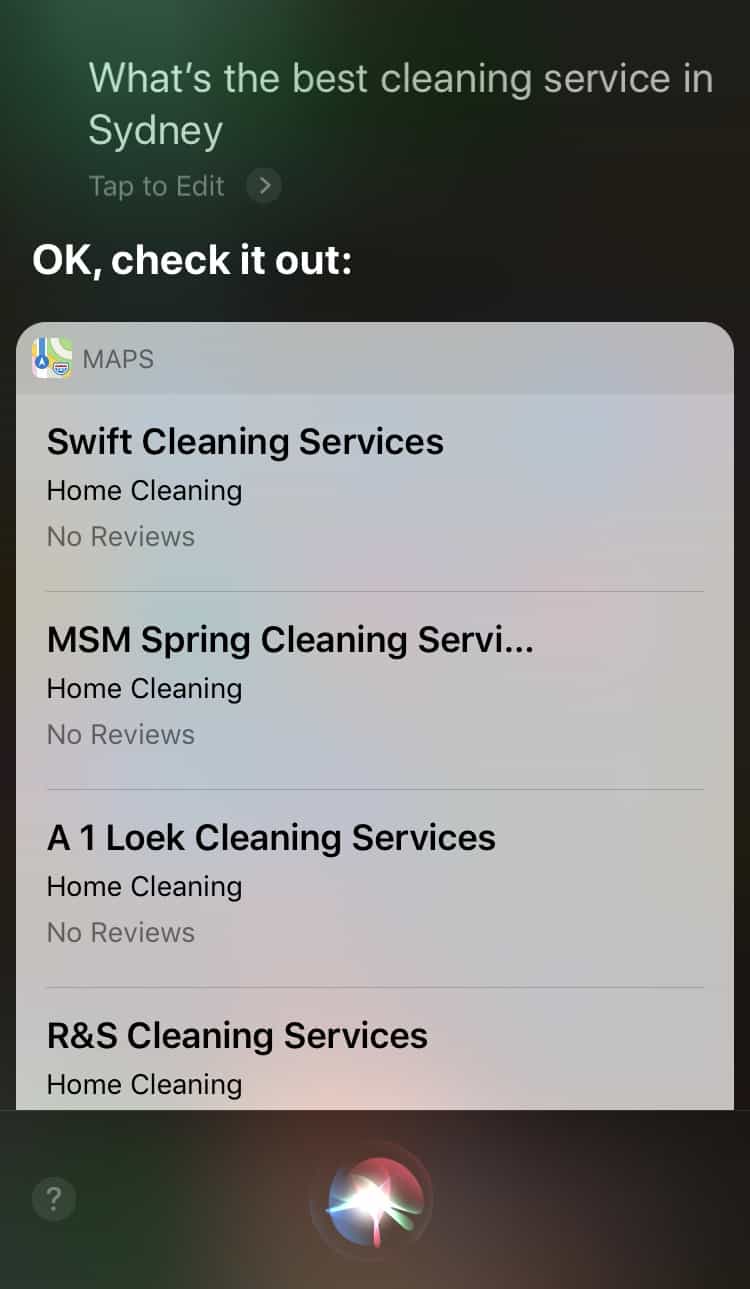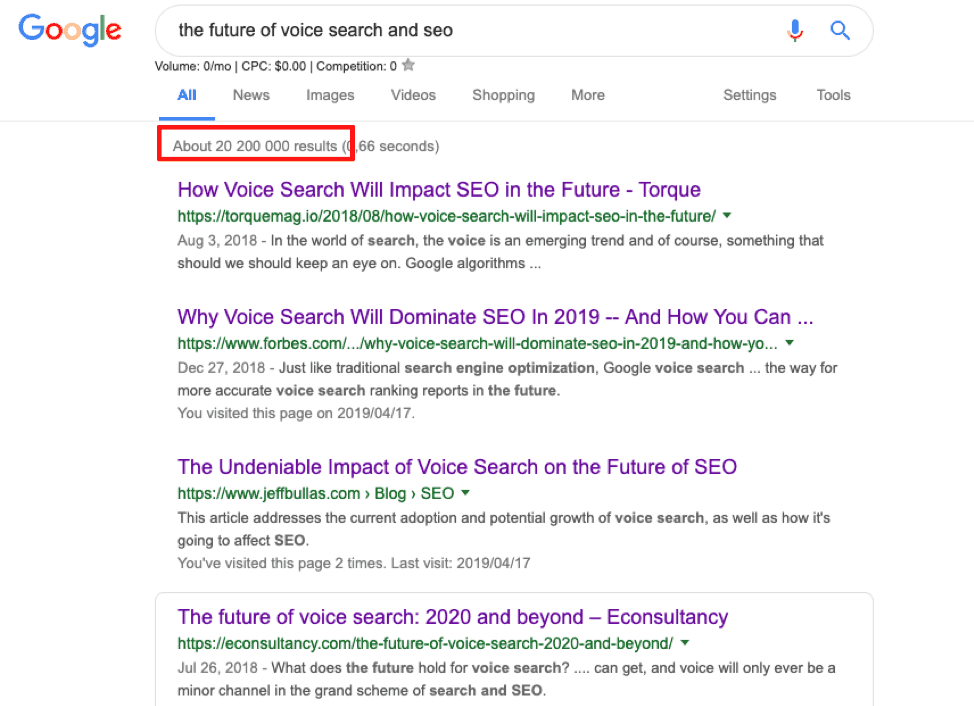The Future of Voice Search
It’s undeniable that the popularity of voice search is on the rise. Right now, we’re in a time where the need for information is instant and the focus is on the customer experience. Enter the voice-enabled search function.
Whether you know it as “Siri”, “Alexa”, or “Hey Google”, voice command searches are rapidly becoming a vital component to the customer journey. In fact, According to Google, 72% of voice-activated device users utilise their devices as part of their day-to-day routine. After all, voice-enabled search systems provide instant answers to customer queries and can be done completely hands-free.
So, what does this mean for your business? It means that it’s time to bake voice command into your SEO strategy! As this digital service expands in popularity, so will its benefits for your business.
What is Voice Search?
In simple terms, voice search allows utilises voice to search the internet for an answer to their query. The query is then processed by a virtual assistant which we know as Siri, Alexa, Cortana etc.
The goal of this application is to provide users with an instantaneous answer. Working off of speech recognition via natural language processing, the application will process what the user is saying and then deliver results orally. Using the information that is already stored on the device or information from the internet, the application will find the best results relating to the initial query.
Let’s see what happens when we ask Siri to find the best cleaning services in Sydney:

Immediately you are given a list of options.
As a business, this technology brings you nothing but opportunities. If you’re optimised for the voice function, you can expect to generate more leads and reach a larger audience in seconds.
The Future of Voice-Command Searches and its Impact on SEO
The future of voice search is only growing and its impact on SEO has barely just begun. Search Engine Land estimates that by 2020, 50% of searches will be completed by voice commands.
This is a huge opportunity for business to remain relevant and to expand their reach.
As we have mentioned, the voice-enabled search technology uses search engines to find the right results to the query. The most appropriate listings are then presented to the user. Enter SEO.
Your SEO strategy is hugely impacted by the increase in demand for voice-enabled searches. Voice and desktop searches use SEO in slightly different manners.
For voice, searches are done in a more conversational and natural way as opposed to the straightforward searches that are used on desktops. Instead of searching for “digital marketing agency” like they would on a desktop, their searches are more conversational by asking “what are the digital marketing agencies near me”.
This new way of searching largely effects how your SEO keyword and key phrase research is done. The keywords you use now have to reflect what your prospect audience might be asking their devices. The focus is more on how they are asking the question compared to what they are asking.
Furthermore, we are seeing a rise in the necessity for featured snippets. With voice command results, users don’t get to see the full search engine results page. In fact, they usually only get to see a snippet or the first few result listing.
Here’s what you can expect from voice results:

Compared to a desktop search:

Users exposed to over 20 200 000 results on desktop compared to a handful from their voice results!
Therefore, the focus is shifting from ranking on page one of Google to being the top result. When providing answers to users, virtual assistants will look at which result is most relevant to that query. That’s why it’s more important than ever to start optimising your SEO strategy to rank for those results.
Steps to Optimise Your SEO Strategy
Enhance Your Website Loading Speed
Is your website mobile-friendly and providing the best experience to your users? If not, you may want to look at developing its content and loading speed to maximise your chances of being listed by virtual assistants. Just like traditional SEO standards, voice command searches prefer websites that load quickly and are optimised for the user.

Consider How Your Target Audience Speaks
Instead of finding keywords and phrases that you know people are typing into their search engines, the focus is now on how are these keywords or phrases being expressed. The importance is more on the long tail keywords that are put in the conversational form.Try using the search function like your audience would. Get into the mind of your consumer and optimise your content accordingly.
Make Your Content Readable by Google
Is your website mobile-friendly and providing the best experience to Your on-page SEO plays a huge role in how identifiable your content is on Google. Look at your heading structure, your keywords and key phrases, as well as your featured snippet optimisations. These small adjustments will impact how well your content is ranked both on voice and desktop searches.
Invest in Your Business Listings
Is your website mobile-friendly and providing the best experience to Your chances of ranking as a voice command result are much higher when your business’ information is updated across all channels. The directions to your offices or store, your opening hours, your business category and every single detail you can think of must match on every platform that you’re listed on.
The voice-enabled search technology uses this information to help users find what they’re looking for. It’s how they determine which listing as best related to their queries especially when it comes to location.
If your information is wrong or conflicts across different platforms, you may face a ranking penalty.

Voice search is undoubtedly on the rise and is fast becoming a consumer favourite. Along with the technological advances this service bring, it provides new opportunities for your business to grow and reach a larger audience. As long as your voice-optimised SEO strategy is robust, you’ll soon be reaping the benefits.
